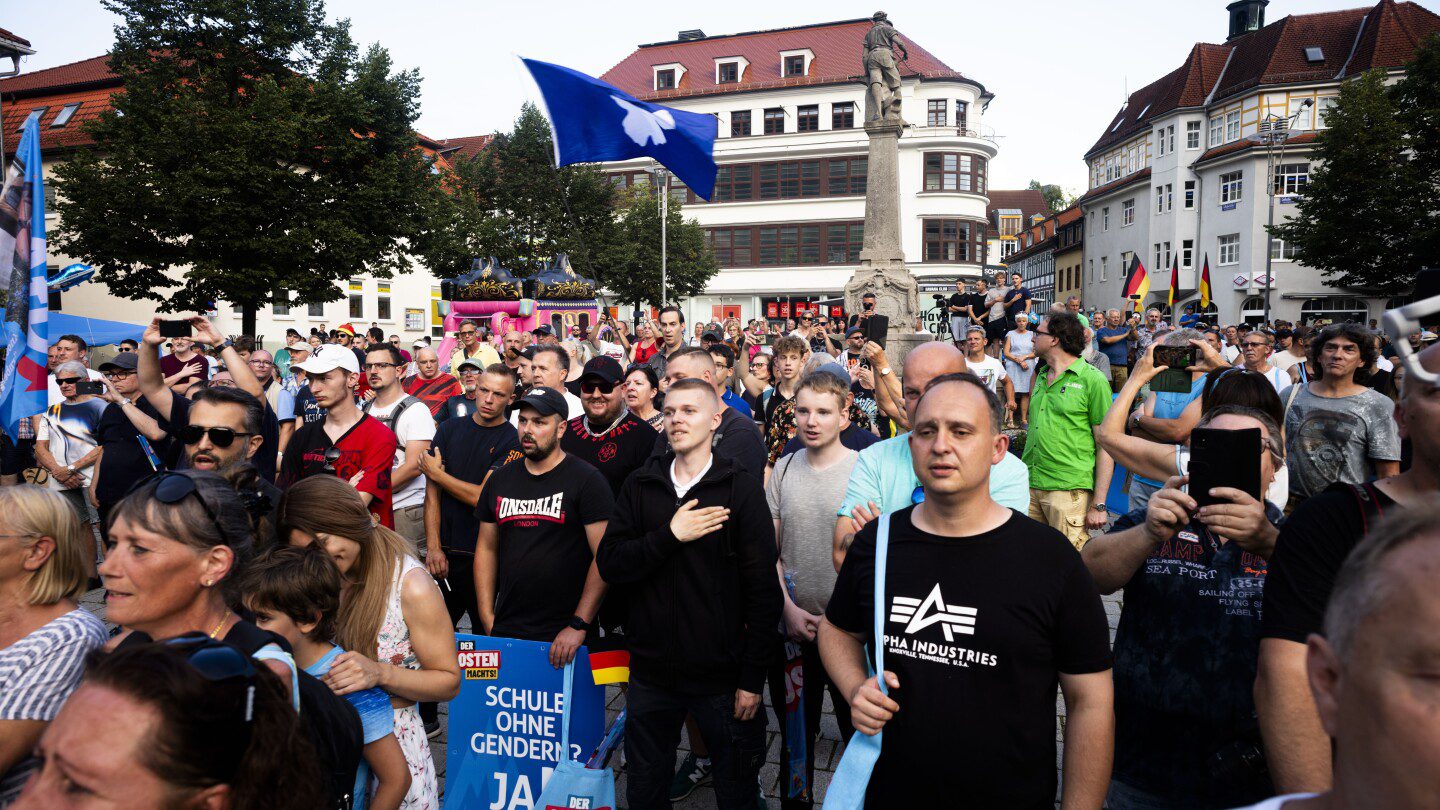
BERLIN (AP) — This month, the Alternative for Germany (AfD) party stands poised to achieve its most significant national election result to date, presenting its inaugural candidate for the chancellorship. While a share of political power remains unlikely in the immediate future, AfD’s influence has become significant, shaping Germany’s ongoing discourse on immigration issues.
Origins of the Party
Founded in 2013, the AfD initially gained traction by opposing financial bailouts during the eurozone crisis, which then-Chancellor Angela Merkel deemed “neither necessary nor optional.” The party was often described as a “professors’ party,” acknowledging the academic backgrounds of its early leaders, but it quickly showcased a blend of anti-establishment and far-right sentiments.
Over the years, the AfD has shifted towards more radical views, frequently altering its leadership. The party experienced a surge in popularity following Merkel’s 2015 decision to accept large numbers of migrants, contributing to a 12.6% vote share in the 2017 national election, marking its first entry into the German parliament.
Current Status
Returning to parliament in 2021, albeit with a diminished vote share of 10.3%, the AfD gained momentum amid the turmoil faced by Chancellor Olaf Scholz’s center-left administration during a series of crises—some of which were self-inflicted—ultimately leading to its collapse.
A year ago, Germany witnessed protests ignited by revelations regarding a meeting of right-wing extremists discussing the deportation of millions of immigrants. Notably, some AfD members were reported to be in attendance. However, this did little to impact the party’s long-term polling support. It secured a second-place finish in the European Parliament elections in June, and in September, prominent far-right figure Björn Höcke achieved the first far-right victory in a post-World War II German state election.
Entering this election with increased confidence and provocative rhetoric, Alice Weidel, AfD’s inaugural chancellor candidate, has adopted the term “remigration,” advocating for significant deportations of individuals deemed to lack legal status in Germany — a term that gained notoriety during last year’s controversy.
The AfD also calls for the immediate removal of sanctions against Russia and opposes military support for Ukraine. The party seeks a return to a national currency and proposes transforming the European Union into a looser association of nations, though it stops short of advocating for Germany’s exit from the 27-nation bloc.
Germany’s domestic intelligence agency monitors the AfD for suspected right-wing extremism, with branches in three eastern states categorized as “proven right-wing extremist” organizations. The AfD firmly disputes these assessments and distances itself from any connections to Nazi history. Höcke has formally contested two convictions for using a Nazi slogan at a political event.
Support Base
The AfD enjoys support across Germany, represented in all but two of the 16 state legislatures, with its strongest backing in the eastern regions, which were previously communist and have economically lagged behind.
Wolfgang Schroeder, a political science expert from the Berlin Social Science Center, noted that AfD has an exceptional ability to address issues “that other parties don’t confront with such precision, intensity, radicalism, and emotional appeal.” Additionally, the party has utilized the internet more effectively than any other German political entity, contributing to its appeal among younger voters in recent regional elections. The party positions itself as an anti-establishment force amidst widespread political disillusionment, often dismissing established political parties as a “cartel.”
Schroeder described the AfD as “an aircraft carrier for resentment and anger,” while other political parties maintain that they will not collaborate with it.
International Connections
The rise of the AfD parallels the ascent of far-right parties across various European nations, including Austria’s Freedom Party and France’s National Rally, highlighting shared ideological ground. Weidel recently visited Hungarian Prime Minister Viktor Orbán in Budapest.
However, the AfD is not part of the “Patriots for Europe” faction in the European Parliament, following some disputes prior to last year’s EU elections. Conflict arose when the AfD’s leading candidate, Maximilian Krah, suggested that not all members of the Nazi SS were “necessarily criminals,” leading to their expulsion from a previous collective.
The party has garnered notable support from billionaire Elon Musk, who is closely aligned with U.S. President Donald Trump. Musk stated that “only the AfD can save Germany,” and participated in a live chat on X with Weidel, also attending an AfD campaign rally via video link.
During the rally, Weidel pledged to “make Germany great again,” echoing the rhetoric of Trump’s well-known slogan.
___
Kerstin Sopke contributed to this report.









